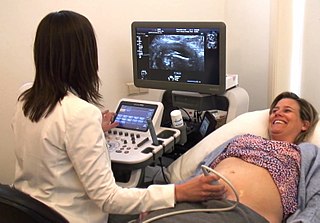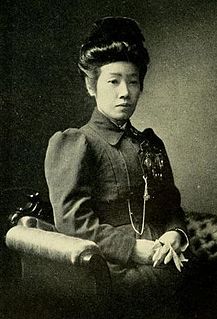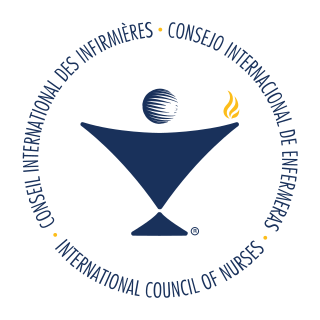W-inds is a Japanese pop boy band managed by Vision Factory and signed to the Pony Canyon label since 2000. The group consists of Ryohei Chiba, Keita Tachibana, and Ryuichi Ogata. Tachibana is the lead singer of the group, while Chiba and Ogata provide backing vocals and rap.
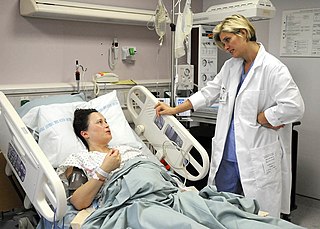
In the United States, a certified nurse-midwife (CNM) is a midwife who exceeds the International Confederation of Midwives essential competencies for a midwife and is also an advanced practice registered nurse having completed registered nursing and midwifery education. CNMs provide care of women across their lifespan, including pregnancy and the postpartum period, and well woman care and birth control. Certified nurse midwives are exceptionally recognized by the International Confederation of Midwives as a type of midwives in the United States.

Japanese singer Ayumi Hamasaki has released seventeen studio albums, five compilation albums, twenty-six remix albums, four live albums and numerous singles and promotional singles. She debuted in 1995 under Nippon Columbia with the stage name Ayumi, releasing an extended play Nothing from Nothing, which was a collaboration with Dohzi-T and DJ Bass. Three years later, Hamasaki debuted again as a singer under Avex Trax with the single "Poker Face" (1998). Her first album A Song for ×× (1999) debuted at number one on Oricon's albums chart, and sold over 1.4 million copies.

The Recording Industry Association of Japan (RIAJ) is an industry trade group composed of Japanese corporations involved in the music industry. It was founded in 1942 as the Japan Phonogram Record Cultural Association, and adopted its current name in 1969.

The discography of Japanese-American R&B and pop singer Utada Hikaru consists of nine studio albums, three compilation albums, eleven video albums and numerous singles and promotional singles. Utada began as a musician in the early 1990s as a member of U3, a family unit made up of her, her mother Junko Utada, also known as 1970s enka singer Keiko Fuji, and her father, musical producer Teruzane Utada. U3 released their debut album Star in 1993, with the hope to debut in America. In 1996, the group was rebranded as Cubic U, an R&B project focusing on Hikaru Utada, resulting in the English language album Precious in 1998 with record label Toshiba EMI.
The discography of Yumi Matsutoya, a Japanese singer-songwriter, consists of thirty-nine studio albums and EPs, forty-one singles, two live albums, and compilation albums. It also denotes her early four albums and seven singles that were released under her former stage name Yumi Arai.
Japanese Red Cross Toyota College of Nursing is a private university in Toyota, Aichi, Japan. The predecessor of the school, a training school for nurses, was founded in 1941. It was chartered in 1989 as a women's junior college called Japan Red Cross Aichi Junior College of Nursing. In 1997 it became coeducational. In 2004 it became a four-year college, adopting the present name at the same time.

"Honnō" is Japanese singer Ringo Sheena's 4th single and it was released on October 27, 1999 by Toshiba EMI / East World. The single was certified double platinum by the RIAJ for 800,000 copies shipped to stores, and later gold for 100,000 downloads to cellphones in 2011.

Japanese Red Cross College of Nursing is a private university in Hiroo, Shibuya, Tokyo, Japan with an auxiliary suburban campus in Musashino, Tokyo.
Japanese Red Cross Hokkaido College of Nursing or JRCH is a private university in Kitami, Hokkaidō, Japan, established in 1999.

The discography of Japanese recording artist and actor Masaharu Fukuyama consists of ten studio albums, four compilation albums, three remix albums, twenty video albums, and numerous physical and promotional singles. Fukuyama debuted through BMG Japan by releasing the single "Tsuioku no Ame no Naka" (1990) and the album Dengon. The works failed to chart, however, in 1992 the single "Good Night", aided by the popularity it gained through use in the drama Ai wa Dō da, charted on the Oricon Singles Chart, peaking at number nine. In 1993, his album Calling became his first number one album on the Oricon Albums Chart; it has sold over 850,000 copies in Japan and has been certified two-times platinum by the Recording Industry Association of Japan (RIAJ).

"'Jumping'" ジャンピン (Janpin) is a song performed by South Korean girl group Kara from their debut Japanese album, Girl's Talk (2010) and their fourth EP, Jumping (2010). It was released on November 10, 2010 as the second Japanese single.

"Break It/Get Myself Back" is a double A-side single released by Japanese recording artist Namie Amuro. It was released on July 28, 2010, through Avex Trax. Break It was used in a Coca-Cola Zero commercial. The song reached number three on Oricon's weekly chart. The single has been certified Gold for shipment of 100,000 copies, as well as "Get Myself Back" being certified as a gold download to cellphones.
Nursing in Japan did not develop until the end of the nineteenth century. Initially introduced only in Tokyo in the late 1860s, small schools utilizing Western models were being opened by the late 1880s. In response to disaster relief, the Japanese Red Cross became an integral part of nursing development. By 1915, nurse registration had been established and public health nurses began working throughout the country. Nursing universities were established in the twentieth century and regulations were passed to develop standards for training and public health.
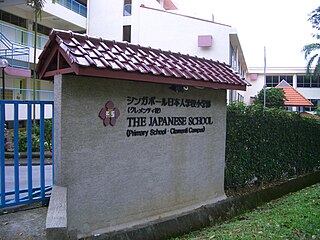
The Japanese School Singapore is a Japanese international school in Singapore, covering elementary and junior high school levels. There are two separate elementary schools of the JSS in Clementi and Changi, while junior high school division is located in West Coast. As of 2013 this Japanese international school is the largest overseas Japanese school in the world.
The All-Japan Artistic Gymnastics Championships are an artistic gymnastics competition, hosted by the Japan Gymnastic Association. The first edition took place in 1947, and the championships has been held annually since then.
In this Japanese name, the family name is Hanada.
